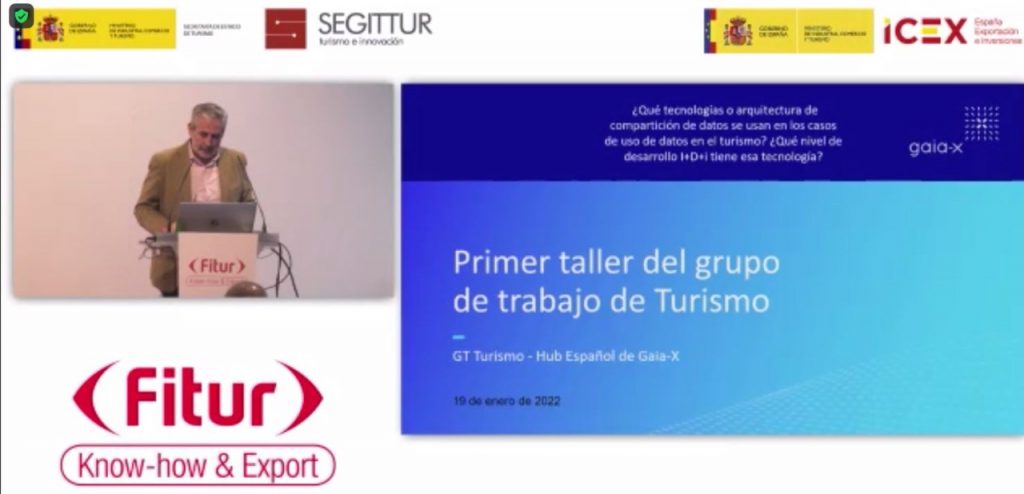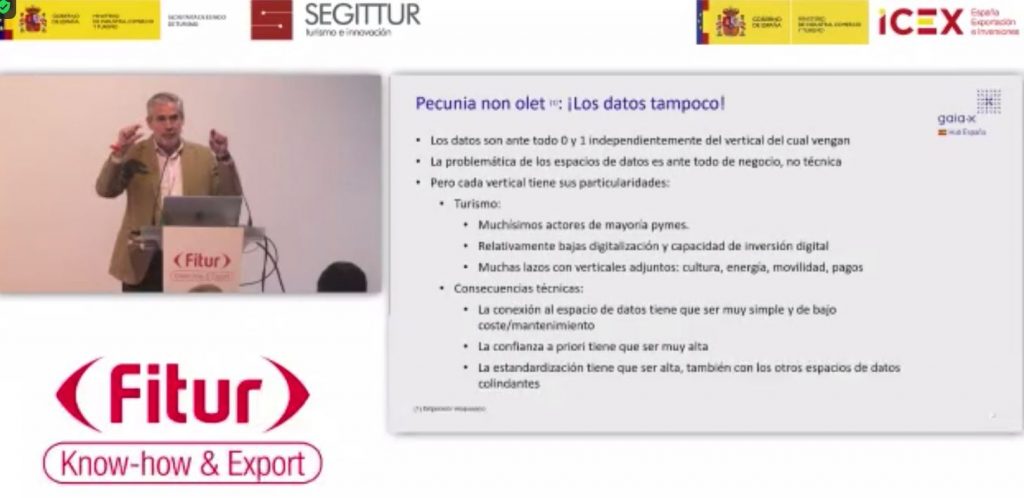DATA DOESN’T SMELL

Juan Giron
Global Corporate Communications at Amadeus IT Group SA
“Money doesn’t smell, said Emperor Vespasian. Neither does data. The value they have is what is important, wherever they come from (…) The problem of the data space is business, not technical. The economic model and the value of the use cases are key. This sector is very atomized, dominated by many SMEs; we work in a transversal way with other sectors that are already working in data spaces that coincide with each other. The level of digital adoption is not high. If we don’t take that into account, it’s going to be difficult to generate value. We are going to have to make a simple, low-cost connection in maintenance, trust is going to have to be very high, as well as standardization within and with other data spaces that allow interoperability. In addition, what is happening in Gaia-X is going to have an influence as well. The architecture should be in a data mesh. And above all, a dynamic of trust has to be built”, explained today Amadeus‘ Head of Industry Affairs EMEA Juan Jesús García Sánchez, Ph.D. at #fiturtechy and #segittur that was also attended by Spain’s secretary of State for Digitalization & AI, Carme Artigas and the SEGITTUR-Sociedad Mercantil Estatal Gestión de la Innovación y las Tecnologías Turísticas, S.A.M.P.‘s chairman Enrique Martínez Marín.


“With data spaces, the notion of large enterprise or small enterprise disappears. SMEs also have a role to play. Economic remuneration is not the only objective, but the improvements that all this will bring. For example, there is intermodality. Throughout the travel cycle, the market today is not able to respond to the need to pool data to allow, for example, a verification of my COVID test, my passport, the security issue, for which I have 800 people waiting in a queue. Today, it is technologically possible to eliminate these frictions, but the lack of trust to share data prevents it. We have the technology, but we all need to share the same standards. The answer to the value lies with those who are willing to share that data”, said Juan Jesús García.

“We are encountering in this first data space dynamic, for the first time, certain groups -a transport provider and an intermediary- who do not want to share data with each other for a given purpose. However, in a data space initiative, assuming there is a technological value, we are finding that we are writing the rules ourselves. And that’s because there’s no price, because we’re going to dictate privacy and we’re also going to dictate at what point something is going to be shared between two parties to take it to the consumer or to an intermediary; and both parties are going to agree on how that’s going to be remunerated, something that’s not written. The value rules of how we’re going to remunerate each other are being written: in some cases it’s not going to be a transactional remuneration, but the fact that by bringing those two things together, they’re going to be able to get to market more effectively than before. People tend to see this as ‘let’s share data to sell them!’ And it has nothing to do with that”, he added.